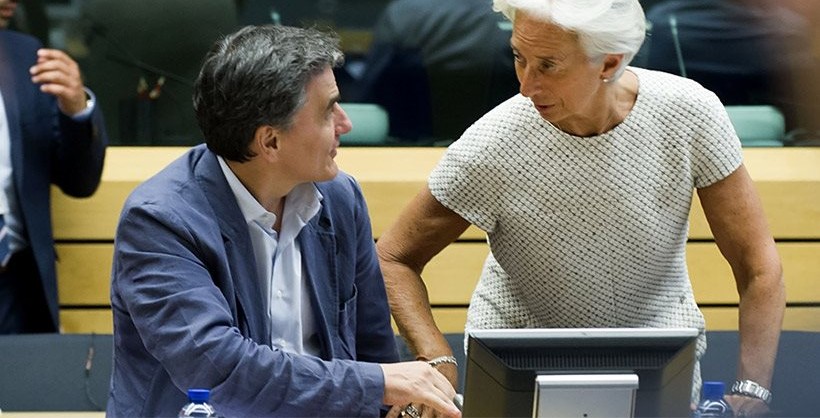December 7, when the final EuroGroup meeting of 2017 is scheduled to tale place, is shaping up to be Greece’s proverbial ‘D-Day’ on the outcome of the whether the IMF will finally participate in the bailout program of the financially struggling country. According to a Greek government source, the next 60 days leading up to the last EuroGroup meeting are crucial and could lead to a new ‘Greek drama’ similar, or event worse, to the one the country experienced in the summer of 2015, as it could find itself embroiled in a tug-o-war between the IMF and Germany with the backdrop of the German elections. The same source expressed the concerns of the Greek government after the completion of talks on the sidelines of the IMF Washington conference between all the protagonists over the weekend, underlining that the uncertainty caused by the question of whether or not the Fund would be part of the Greek bailout program would derail all the projections based on a steady flow of financial assistance by its creditors, including the IMF. The fears are that if the Fund’s involvement is not finalised by the start of 2017, this would inevitably impact the question of Greece’s debt relief, which would in turn affect Greece’s inclusion in the ECB’s quantitative easing program and its ability to finance its needs from the markets. The uncertainty of the program would lead prospective investors to steer clear of Greece, a fact that would derail the GDP primary surplus projections and eventually economic recovery. “No one is showing their ‘cards’ until the last moment. So December 7, when the final EuroGroup meeting of the year will take place, is a possible date when the two procedures of the second program review and the debt relief might be discussed and decided upon’, the same source said. While the IMF has made it clear that it would only remain on the Greek program -its contribution is estimated to 25bln Euros- if there was some kind of debt restructuring, as it believes the forecast of the primary surplus target is unrealistic under the current circumstances, it could agree to continue as long as harsher cuts in the Greek economy were made.
December 7 EuroGroup crucial date for Greece, government source says
Final EuroGroup meeting could decide the future of debt relief and IMF participation on Greek program



































